Tchia on PC
Tchia’s father has been kidnapped by Maevora, an evil deity who has taken over Tchia’s homeland, and she must set out on her own to rescue him with nothing but a sailboat. Along the way, she’ll make new friends and allies, unlock and master a legendary ability – Soul Jumping – and uncover the secrets of her own mysterious past.
This game is one of my favorite games I’ve ever played for a hundred different reasons. I recommend it for anyone who likes open-world games of any kind, whether you’re an experienced, hardcore gamer or a more casual player. Keep reading to find out why.
The Physics (and Metaphysics) of Tchia
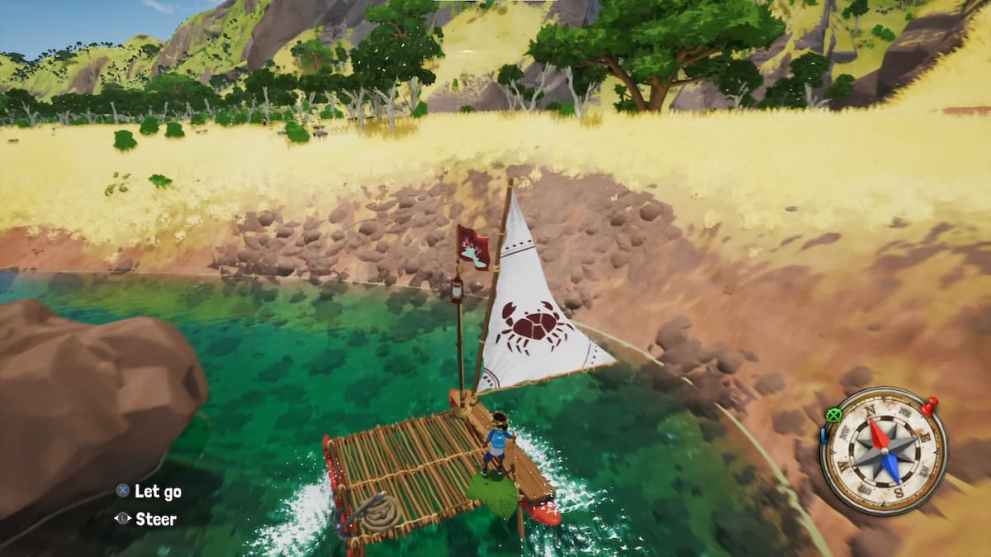
Tchia’s physics-based gameplay is, without question, one of a kind. The game’s open world demands creative, out-of-the-box thinking to navigate its tropical environment. Exploring the vast mountainous landscape on foot as a human girl takes ages, even with the benefit of a sailboat. And anything more intense than climbing quickly drains Tchia’s stamina bar, which is excruciatingly limited at the start of the game.
Tchia can use her environment and magical abilities to explore the world more efficiently. For example, she can climb trees and sway back and forth to launch herself into the air and glide across long distances faster than she could on foot. Both climbing and gliding consume stamina, but strategically deploying and disengaging the glider can conserve it to cover more ground.
Soul Jumping
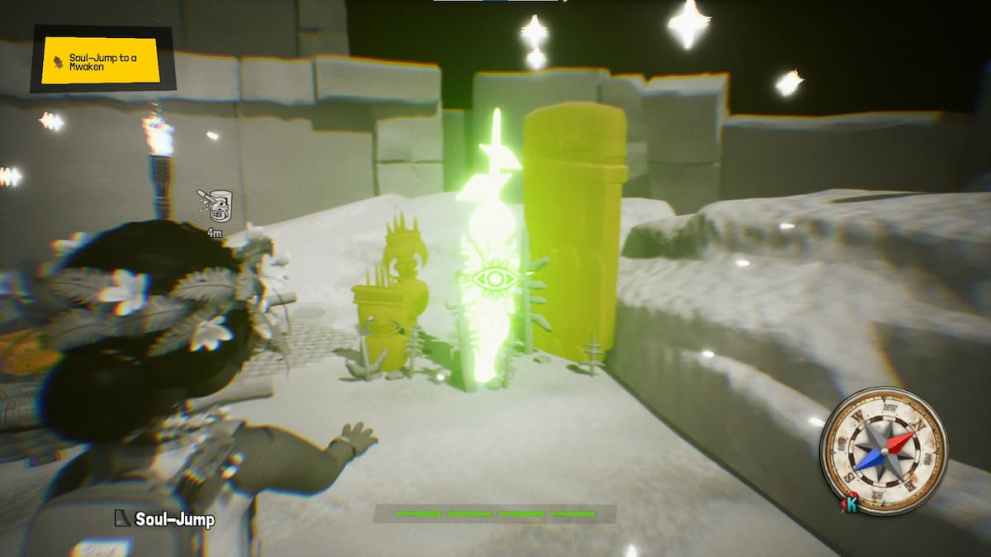
But the real physics magic is in Tchia’s Soul Jumping ability, which allows her to possess objects and animals in her environment. Instead of climbing up a mountain, for example, Tchia can Soul Jump into a bird and fly to the top. To get down, she can Soul Jump into a rock and throw herself off the cliff.
Exploring underwater is tough with limited human lungs, but Soul Jumping into a fish is the best way to find hard-to-reach treasures like valuables chests and clam pearls. Soul Jumping into a lizard makes it easy to crawl into tight spaces.
Sometimes Soul Jumping is essential, such as when you need to become a crab to break chains on a treasure chest. In most cases, though, it’s up to you to decide when and how to use Tchia’s Soul Jump ability to your advantage. Certain targets, like the mythical Mwaaken, have powerful magic abilities that make the game’s minimal combat easier, but some are just fun to play with, like dolphins, grasshoppers, and coconuts.
Figuring out how to summon and strategically possess different types of animals is half the fun of the game. I rarely even used my sailboat, except when I needed to reach islands too far away to fly to, because Soul Jumping, sliding down hills, launching off trees, and gliding were so much more exciting (and faster).
Soul Melodies
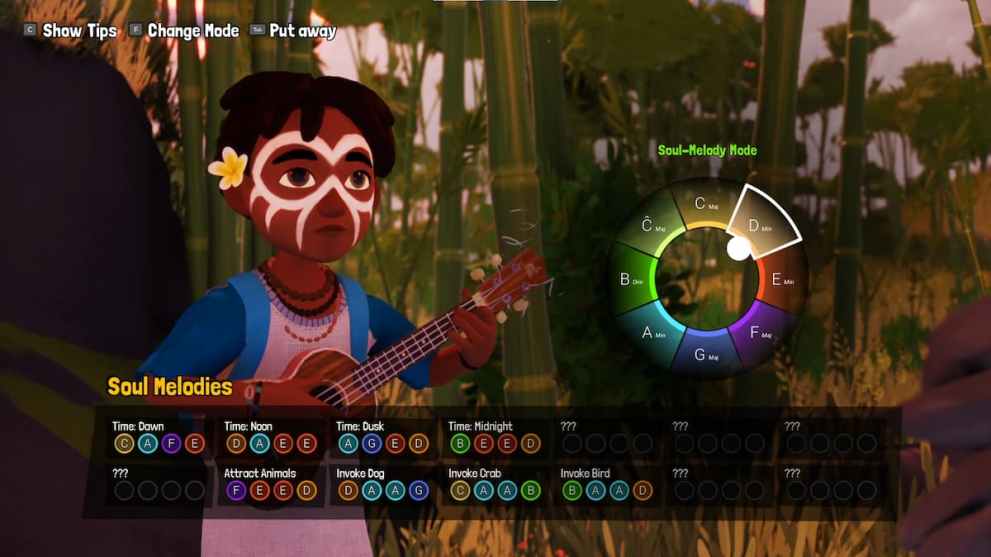
Tchia can also control the environment around her with Soul Melodies played on her ukulele. Rock stacking challenges throughout the game world unlock special tunes that Tchia can play. Each tune has a different effect – summon animals that you can Soul Jump into, change the time of day or the weather, or summon an infinite air bubble to make underwater exploration easier.
Unlocking these Soul Melodies is one of the best things you can do early in the game. Sometimes the only way to accomplish something is by Soul Jumping into a particular animal, but the animal you need isn’t always around. Once I unlocked a couple of Soul Melodies, I used them almost constantly, and they made the game ten times more exciting to play.
Play the Story or Explore the World – It’s Up to You
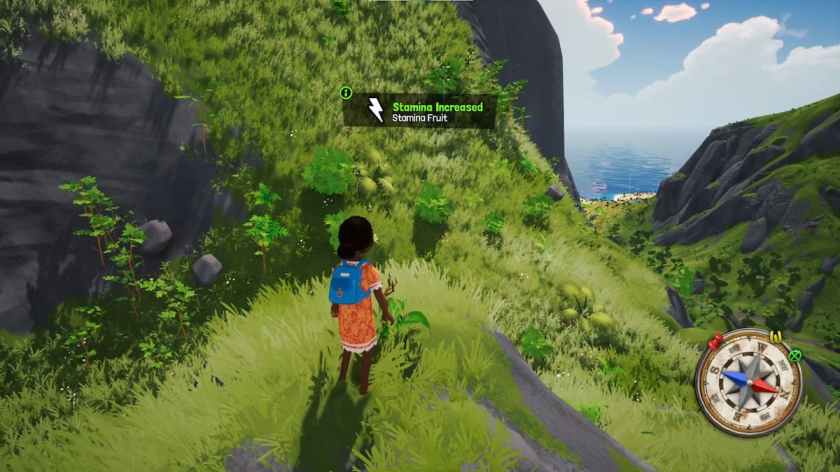
In the open world of Tchia, you can choose to pursue Maevora at full speed or take your time navigating the game’s vast tropical landscape. There’s plenty to do and fun to be had either way, but players who explore the many nooks and crannies of the game can earn handsome rewards that make the rest of the game easier and more interesting.
Scattered around the map, there are Points of View – tall peaks and other high points that Tchia can climb to get a better view of the world around her. Shouting from these Points of View, like Synchronization in Assassin’s Creed, reveals nearby landmarks, such as Food Stands to replenish your Soul Meter, Stamina Fruit to increase your maximum stamina, and challenges to test your skills and earn trophies.
The main storyline will take you all over the map, but how much you explore along the way is totally up to you. I found myself playing Tchia in the same way that I play Skyrim – marking my next quest destination on the map, then hitting every landmark, treasure, and challenge along the way.
And what I love most about Tchia’s open world is that, while it is vast, reaching 100 percent feels absolutely achievable (unlike maps like Skyrim and Assassin’s Creed: Odyssey which take literal years to explore).
After you’ve completed the main quest, you return to the islands as Tchia to visit people you’ve lost along the way and uncover more of your homeland, so there’s no pressure to finish it all or explore every nook and cranny before moving on to the next quest segment. You can always come back and see more of the game world later.
The Accessibility
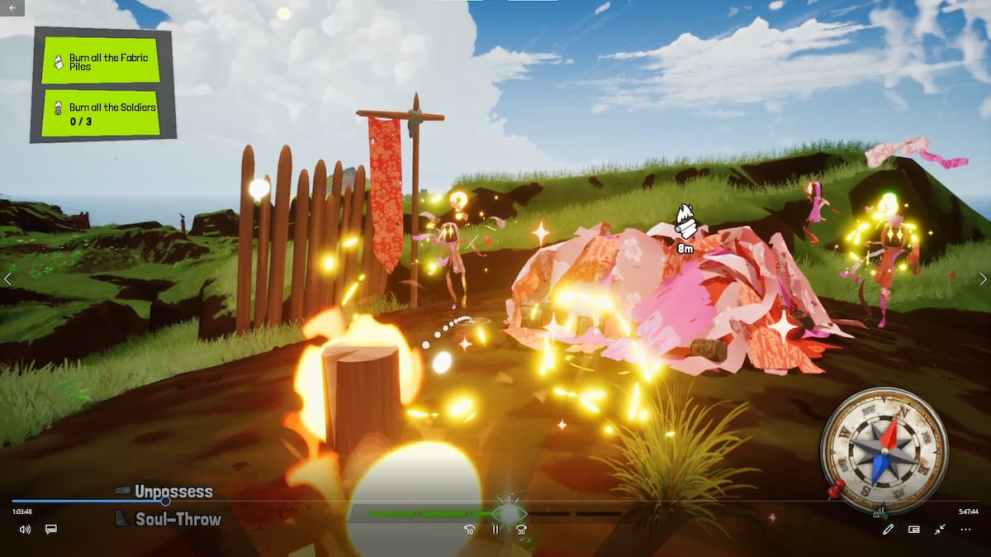
As impressive and immersive as Tchia’s in-game physics are, you don’t have to be a hardcore adventure gamer to enjoy Tchia. There’s almost no combat in the entire game, and a lot of it is completely optional. The only enemies in the game are the Maano Soldiers – essentially haunted fabric monsters – that you have to burn by Soul Jumping into oil lamps, gas cans, and fires and Soul Throwing yourself at them.
There are only a handful of Maano camps scattered across the game map, and they’re easy enough to avoid if you don’t enjoy combat. However, there are four larger Maano encounters that Tchia does have to engage in to progress the storyline, so it’s definitely worthwhile to get some practice at the smaller camps earlier in the game.
There’s no real risk involved in the Maano battles, either. They can’t kill Tchia; if you get caught while trying to burn them, the Maano Soldiers just lock you in a crate that you can easily Soul Jump out of. You can fail and try again as many times as you want or flee and come back to fight another day.
Still, even if you’re not into combat at all, you can still play (and beat) the game. Tchia’s developers have built in an option to skip gameplay segments along the way, moving to the next relevant story segment if you’re ever stuck. You might miss out on some story elements by doing this, but it’s nice to know that you can see the game through to the end, no matter what.
The Verdict
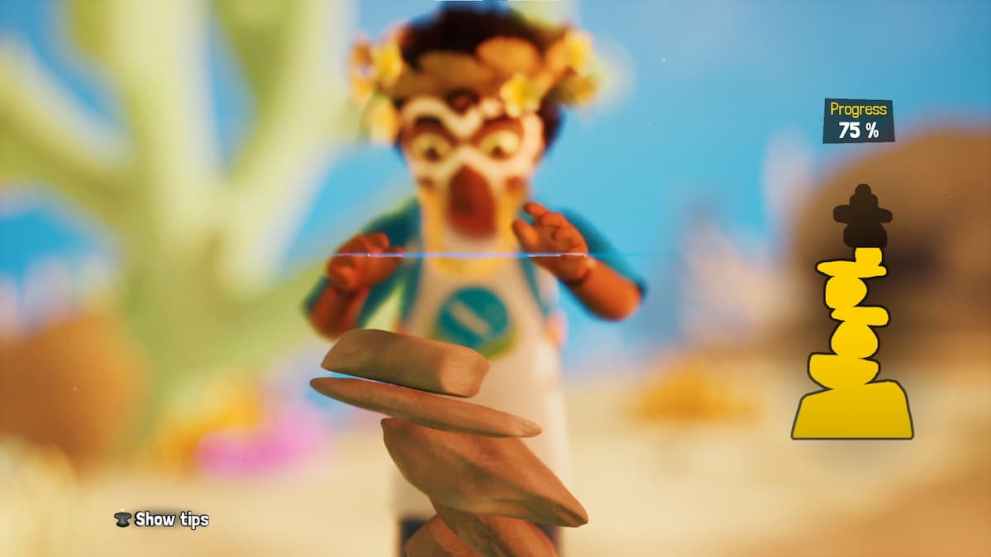
Tchia is easily one of the most exciting games of the year. Its vast open world and spot-on physics-based gameplay are immediately immersive and utterly addictive. It reminds me of an approachable, family-friendly version of huge games like Skyrim and Assassin’s Creed.
It only takes about ten hours to complete the main story from start to finish, which is totally digestible even for casual gamers. But explorer types will likely find that there are easily ten more hours of gameplay to cover the entire game map.
Novice gamers and those who prefer story-centric games will love the no-fail nature of Tchia, and experienced gamers will get a kick out of manipulating the game environment in out-of-the-box ways with Tchia’s Soul Jumping abilities.
If you’re reading this, get Tchia. Seriously.
